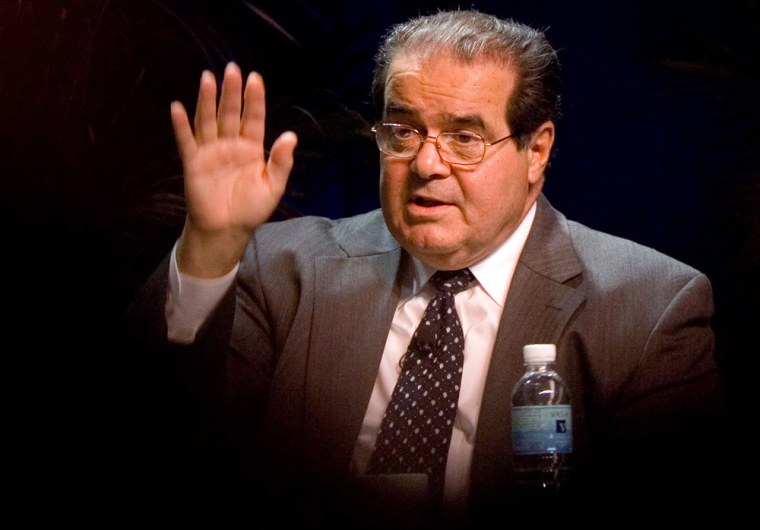The president of a leading U.S. civil liberties group pressed staunchly conservative Supreme Court Justice Antonin Scalia Sunday over his opposition to abortion, gay and religious rights.
The American Civil Liberties Union's Nadine Strossen and Scalia also differed on other hot-button issues, including the death penalty, which he supports, and the use of race to foster diversity in education, which he opposes.
They appeared at an hour-long debate at the start of a three-day ACLU membership conference designed to muster support for civil liberties at a time when the Bush administration has asserted broad presidential powers in the war on terrorism.
Right to an abortion
"Where in the Constitution does the government have the power to tell free individuals, adults, what we may or may not do in the privacy of our own homes, with our own bodies and with those we choose to live with?" Strossen asked Scalia.
Scalia takes the view the right to an abortion never appears in the U.S. Constitution, and the Supreme Court's historic 1973 Roe v. Wade decision that created a woman's constitutional right to an abortion was wrongly decided.
He also dissented from a Supreme Court decision in 2003 that struck down as unconstitutional a Texas anti-sodomy law -- a ruling hailed by gay rights advocates.
On abortion and gay sexual conduct, Scalia said, "Nobody ever thought that they had been included in the rights contained in the Bill of Rights (in the Constitution), which is why abortion and homosexual sodomy were criminal for 200 years."
Scalia said the 2003 ruling means the state has no right to proscribe sexual mores and said it could cast doubt on laws banning bigamy, incest and prostitution.
Religious rights
Appointed to the Supreme Court by President Ronald Reagan in 1986, Scalia has become a lightning rod for liberal criticism, but has been praised by President Bush as one of his favorite justices.
Scalia and Strossen also clashed on the issue of religious rights. "If religious freedom and conscientious freedom are not an expressly protected constitutional right, I don't know what is," she said.
Judicial restraint
Scalia's concept of jurisprudence is based on the belief that judges should keep out of issues better dealt with by democratically accountable institutions such as Congress and state legislatures.
His doctrine of judicial restraint includes a strong belief that the Constitution and the laws should be construed solely by reference to their actual words.
Of Strossen's view that the Constitution's meaning evolves from generation to generation, Scalia referred to the nine Supreme Court members and said,
"Why in the world would you want nine people from a very uncharacteristic class of society, to wit nine lawyers, to decide how the Constitution evolves?"
Strossen's response, which drew applause from the audience, was that federal judges are in the best position to protect the rights of individuals and minorities. (additional reporting by Joanne Allen)
